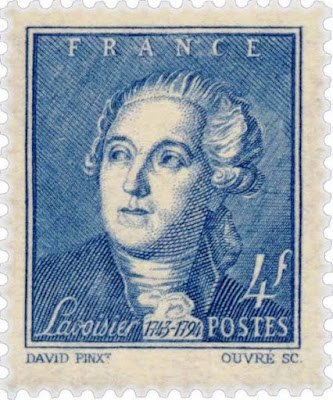Antoine-Laurent de Lavoisier (26 August 1743 – 8 May 1794) was a French chemist, physicist, and biologist often referred to as the "Father of Modern Chemistry." He made groundbreaking contributions to the field of chemistry and played a crucial role in transforming chemistry from a qualitative science into a quantitative one, establishing the foundation for modern chemical theories and practices.
Some of Lavoisier's key contributions include:
Law of Conservation of Mass: Lavoisier is known for his formulation of the law of conservation of mass, which states that in a chemical reaction, matter is neither created nor destroyed; it is simply rearranged.
Oxygen's Role in Combustion: He conducted experiments that debunked the phlogiston theory and demonstrated that combustion and rusting were processes involving the combination of substances with oxygen. This laid the groundwork for the modern understanding of oxidation and reduction reactions.
Chemical Nomenclature: Lavoisier was instrumental in developing a systematic naming system for chemical elements and compounds, which is the basis for the chemical nomenclature still used today.
Quantitative Approach to Chemistry: Lavoisier emphasized the importance of accurate measurements and the use of the balance in chemical experiments. His quantitative approach paved the way for precision in chemical analysis and experimentation.
Chemical Revolution: Lavoisier's work, alongside other chemists of his time, marked a paradigm shift in the study of chemistry, moving away from alchemical and mystical concepts and focusing on rigorous scientific methods.
Lavoisier's contributions were not only scientific but also extended to the reformation of chemical education, research funding, and the promotion of the scientific method. Unfortunately, his life took a tragic turn during the French Revolution. He was falsely accused of various charges, including tax fraud, and was ultimately sentenced to death by guillotine in 1794.
Despite his untimely end, Lavoisier's work and ideas left an indelible mark on the field of chemistry, fundamentally shaping the way we understand and practice chemistry today.

No comments:
Post a Comment